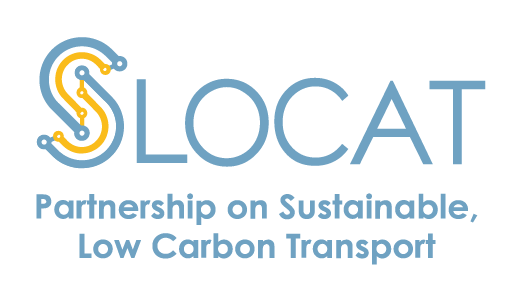Foreword

Maruxa Cardama
Secretary General,
SLOCAT Partnership
A just transition to equitable, healthy, green, and resilient transport and mobility systems is central to socio-economic prosperity for people and the planet. In addition to reducing greenhouse gas emissions from transport, such a transition will yield social, environmental and economic multiplier effects that go well beyond the scale of the necessary financial investment. To achieve this, systemic transformations in transport and mobility – linked to wider socio-economic transformations – are needed.
The past couple of years have changed the world. Most transport and mobility systems globally have become more vulnerable to systemic shocks, disproportionately affecting people living in vulnerable situations. Wide-ranging challenges have put the already-elusive progress towards the Sustainable Development Goals and the Paris Agreement at increased risk.
The SLOCAT Transport, Climate and Sustainability Global Status Report – the 3rd edition in this flagship knowledge series – continues to tell the global and regional stories of where we are and where we need to get to urgently on climate and sustainability action for transport and mobility. With contributions from 100 world-class experts and organisations, it is a one-stop shop for the latest available data, trends, targets and developments on transport demand, emissions and policies. The GSR equips decision makers towards knowledge-based action and aims to raise ambition in transport policy and investment for people and the planet.
The report consists of five thematic modules covering 12 transport areas. It includes five spotlights on cross-cutting issues as well as 30 country fact sheets. An updated version of the open-source SLOCAT Transport Knowledge Base that forms the basis of the report was released along with the full report. New for this edition, the report was released in a modular approach from June to September 2023, which synthesises knowledge and data more systematically and helps our readers comprehend specific issues more effectively.
On behalf of SLOCAT I would like to express our deepest gratitude to the impressive community of changemakers who have contributed to this co-creation, co-leadership and co-delivery process. A significant share of the research for this report was conducted on a voluntary basis. It has been a great privilege to listen to the diversity of voices and learn from the expertise across our Partnership and beyond the transport community.
This edition has been made possible thanks to financial support by Deutsche Gesellschaft für Internationale Zusammenarbeit (GIZ), supported by the German Federal Ministry for Economic Affairs and Climate Action (BMWK) through their International Climate Initiative (IKI), as well as by the Volvo Research and Educational Foundation.
By catalysing and driving collaborative, open data and flagship knowledge product, SLOCAT facilitates access to the world-class knowledge and solutions available across our Partnership. I hope you will find this report a valuable tool to enable combined transport, climate and sustainability impact.
